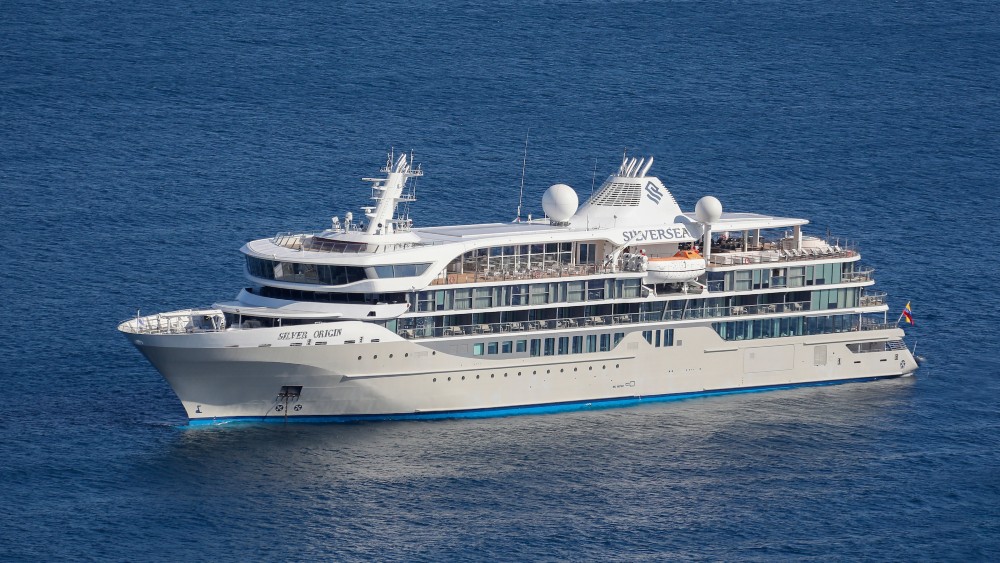
The cruise line and passengers were severely disrupted by the coronavirus outbreak aboard Diamond Princess. The cruise line and its employees have made it more important to ensure that all ships are sanitized after an outbreak like this.
The cruise line has created a plan to ensure the safety of all its ships. The company has developed new protocols for health in response to the outbreak.
During the norovirus outbreak in Galveston, Texas, Princess Cruises enhanced its cleaning and disinfection procedures, notified passengers of the situation and collected stool samples from those who were infected to send to the CDC for testing. This was done to enable the CDC monitor the outbreak in real-time and prevent it from recurring.
Once the outbreak was confirmed, the Diamond Princess was quarantined in Japan for 14 days. Once the quarantine period was over, the Japanese government approved that sailing could resume.

Belfor Property Restoration's team of 240 workers took almost a whole month to thoroughly clean 18 decks, 1300 individual cabins, and all common areas. According to BELFOR it is called a "level-three clean", the most thorough cleaning in industry.
This was a heavy duty surface disinfection, performed by DuPont Personal Protection, RecoveryPRO, AND BELFOR Group. These companies worked together to disinfect Diamond Princess and complied with protocol guidelines established by global safety and security organizations, such as the Japan Ministry of Health and Labour and Welfare.
For both workers and Princess Cruises staff, the disinfection process required extensive training. The company devised a sanitization strategy that included disinfecting high touch surfaces such as railings and door handles, encouraging passengers to use the in-cabin bathroom facilities, hand sanitizer, and treating any sick guests until they are completely healed.
Norovirus, on the other hand is a sticky virus that can be hard to kill and gets stuck to surfaces and objects inside ships. It takes extra effort to bring a cruise ship back to normal. According to the CDC disinfecting high-traffic areas (e.g., gangway rails, stairs, elevators) takes typically two hours.
To prevent similar events from happening again, the company has increased its sanitization processes and is working with health professionals to develop new protocols. These include thermal scans and free-flowing hand sanitizer.

It's a good idea that you take your cruise boat to the marina and clean it up regularly. This helps prevent a bacterial buildup in your ship's hull, which can cause leaks and other problems.
Every few months, schedule underwater hull cleanings to keep your vessel looking great. These can be done at the dock or at sea depending on how often your ship is used.
You can search the American Cleaning Services Association website for a local cleaning company. The Association, a non-profit trade organization, represents more than 300 cleaning services providers in the United States.
FAQ
What tip do I have to give my Cruise Director?
This can vary from cruise line-to-cruise line. Some cruise directors do receive tips while some don't. It is best to ask your Cruise Director before you board the ship to find out if they expect tips. They will often tell you if tips are expected.
Are there any drawbacks to cruising
Consider these things when weighing the pros and disadvantages of cruising. Some people don't like spending their entire vacation on boats. Others may prefer to stay near shore or in hotels. Others may be uncomfortable traveling so far from home. These fears can be easily overcome if you choose a cruise with plenty time ashore.
How can I choose the best cruise line?
It's easy to pick the right cruise ship. Decide what kind of cruise you want to take. You may want to take a small, intimate cruise with only a few people or if you prefer a larger cruise with lots of passengers. Also, think about how much money it is worth. If you are looking at something more affordable, then consider cruises that offer "all inclusive" packages. This means that you will not have to worry about paying extra for food, drinks, entertainment, etc. Finally, if you plan on a family trip, ensure that the cruise lines you choose offer good family programs.
Statistics
- The line estimates savings of 50% when you purchase this bundle. (travel.usnews.com)
- For an example of savings, Royal Caribbean offers up to a 40% discount with a dining package. (travel.usnews.com)
- *20% Gratuities Apply on Free Unlimited Open Bar; Free Specialty Dining. (ncl.com)
- In addition, 10 to 15 percent gratuity is typically added to bar bills — for alcohol and soft drinks — and gratuities are applied to spa treatments. (cruiseline.com)
External Links
How To
How to stay safe while aboard a cruise vessel
There are many things to be aware of before you board a cruise ship. You must understand how to behave when onboard so you don't get into trouble. Here are some safety tips you can use to make sure you have a great trip.
-
Always be aware of what is happening around you. On cruise ships, people often congregate, especially at mealtimes. Because you are surrounded with people who want to talk and eat, it is easy to get distracted from your tasks. This should not distract from what you are supposed do. If you notice someone engaging in dangerous behavior, such as smoking, or drinking alcohol, politely tell them to stop.
-
Keep your room keys close to your body when you board a ship. When you get onboard, hand your key over to the person checking you in. This way, they'll know where to find you if anything happens to you. Make sure you have your passport handy too.
-
Keep your valuables out of sight. Most cabins include drawers under the beds. It is a good place to store valuables like money, credit cards, passports, etc. Make sure that nothing valuable is visible from plain sight. Keep your bags hidden in the closet.
-
Keep hydrated. Although cruise ships offer plenty of water, it can be difficult to remember to drink enough. Use the free bottled water that is available onboard. Do not become dehydrated. Dehydration can cause fatigue and make it difficult to concentrate, leading to arguments or even accidents.
-
Pay attention to the announcements. Announcements can also be seen on television screens and in public addresses systems. They include safety procedures as well emergency exits and even weather reports. These announcements will be of great importance. They may save your life.
-
Always lock the cabin before you leave. No matter how friendly a crew member may seem, never leave your cabin without locking it. Unlocked doors are often used by thieves to gain entry. If you need to use the restroom, ask a crew member for permission first.
-
Avoid going alone overboard. It may take time for the crew of the ship to rescue you if you fall overboard. Your body may be attracted by sharks and other sea creatures. Waiting until help arrives is the best option.
-
Never smoke inside the elevator. These elevators are pressurized and smoke can build up quickly. Get out as soon as you feel dizzy. It doesn't necessarily mean that breathing is safe, even though the outside air is clean.
-
Know how to evacuate. Each year thousands of people are killed by being stuck in elevators. Follow the instructions on screen if you are in an emergency.
-
Make sure you are familiar with the fire drill. Fire drills take place regularly, almost every day. Everyone on deck must evacuate when there is a drill. Follow the instructions of the crew members. Once the drill is over, you can go back to the cabin and lock the doors.
-
Ask questions before you accept food and drinks. Food poisoning is a common problem among cruisers. Many people don’t know that certain foods may not be safe to consume while aboard a cruise ship. Many cruise ships ban raw oysters. If you aren't sure if the food being offered to you is safe, politely decline and choose another meal.
-
Take care when you use the pool. Many people have fallen into the pools by accident. It is possible to slip and fall into the pool without being noticed. It's also possible to slip and fall on deck at any time. Always wear appropriate footwear and pay close attention to what's around you.